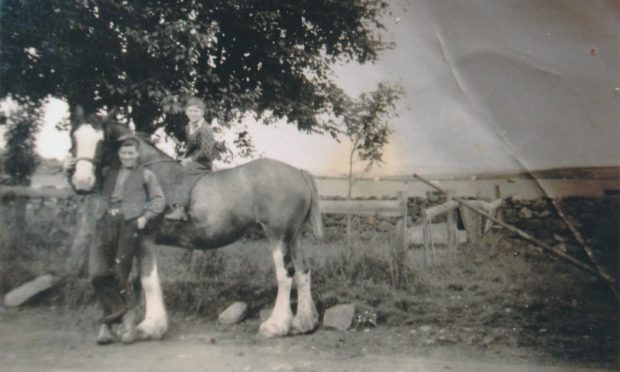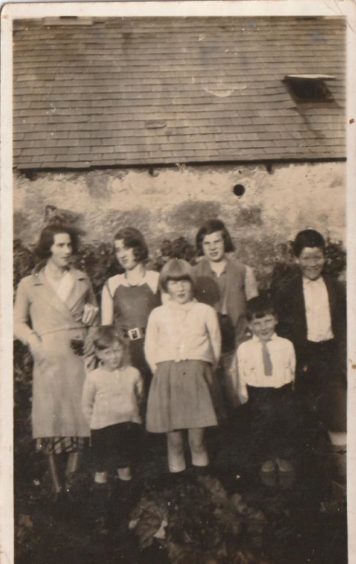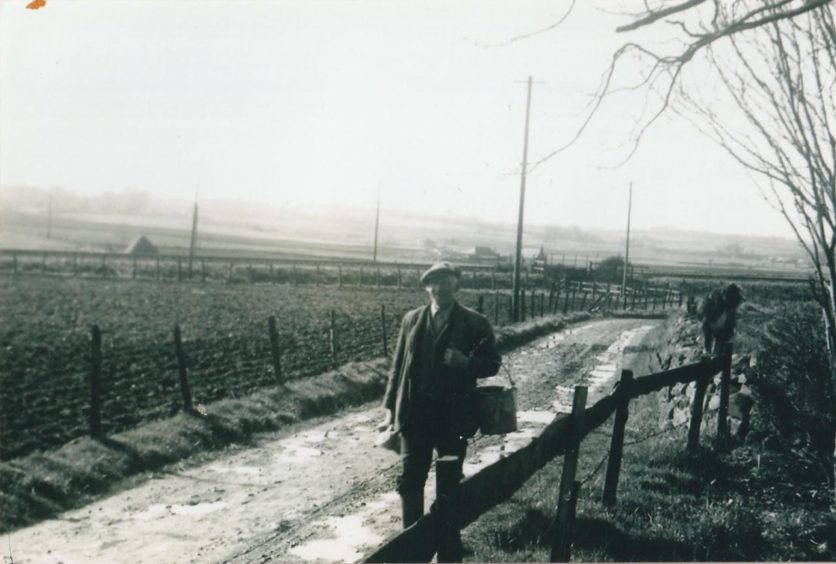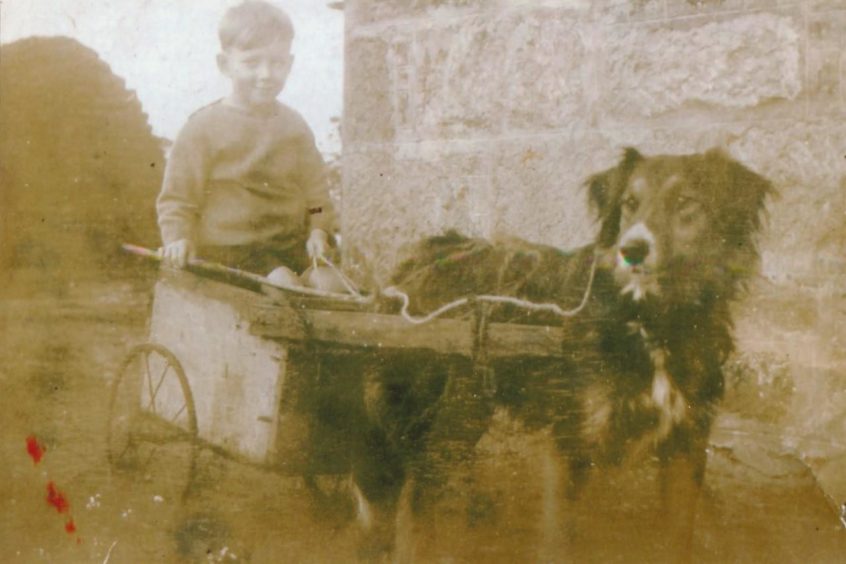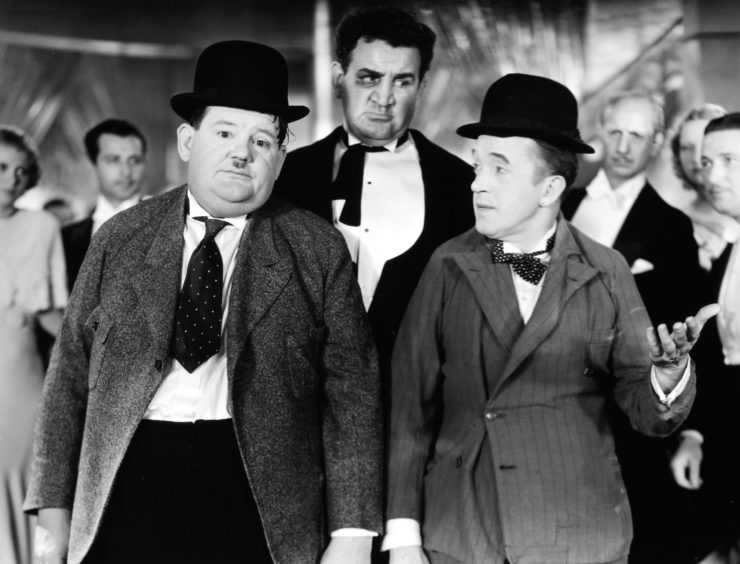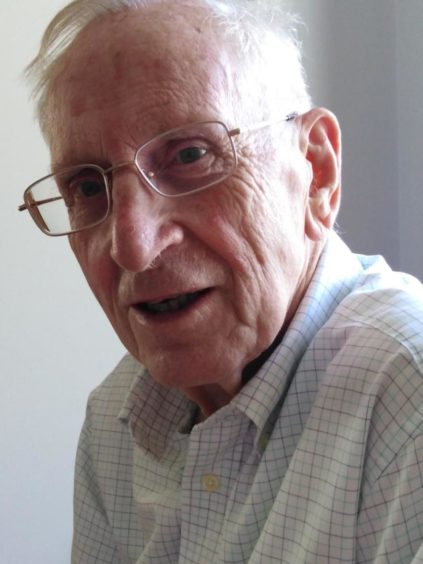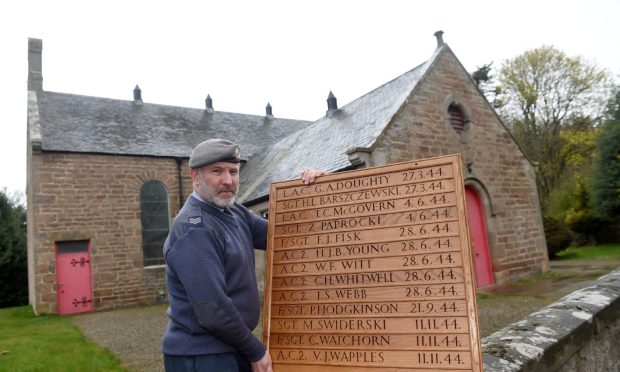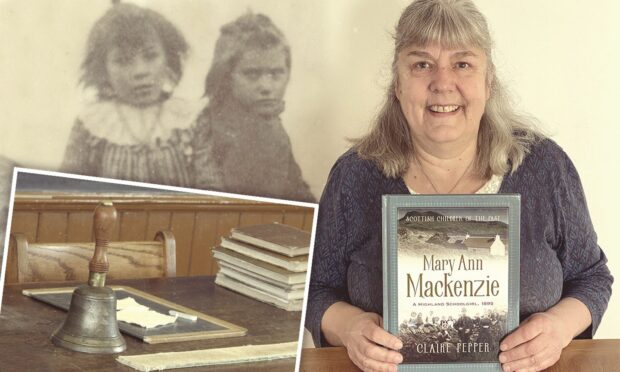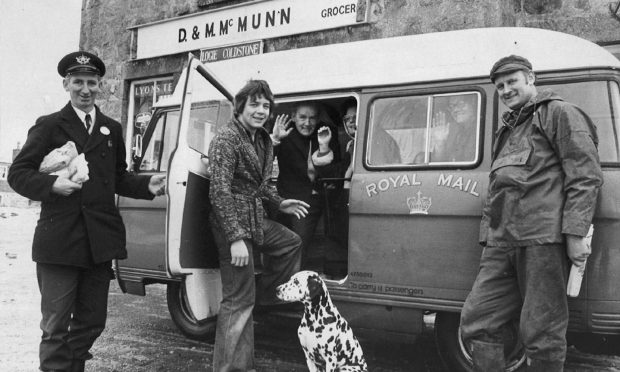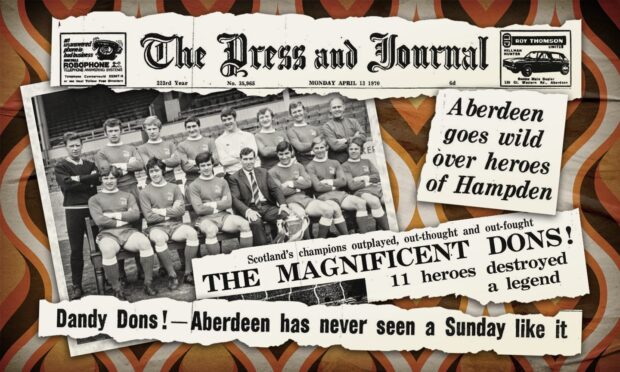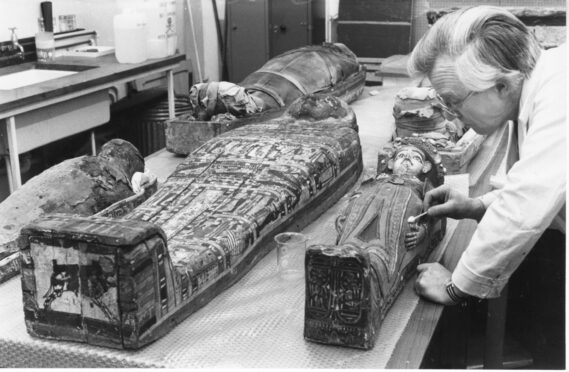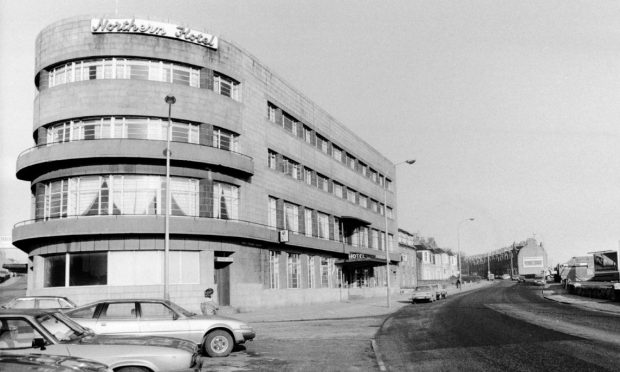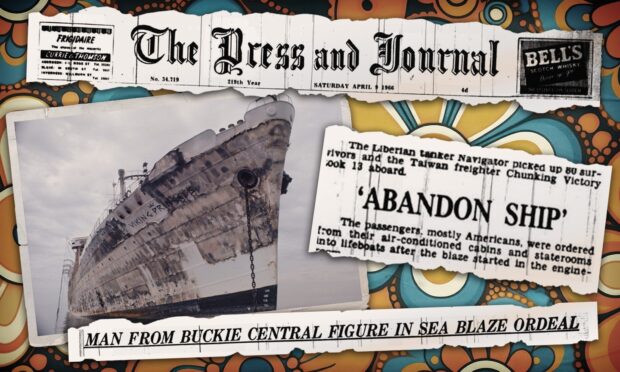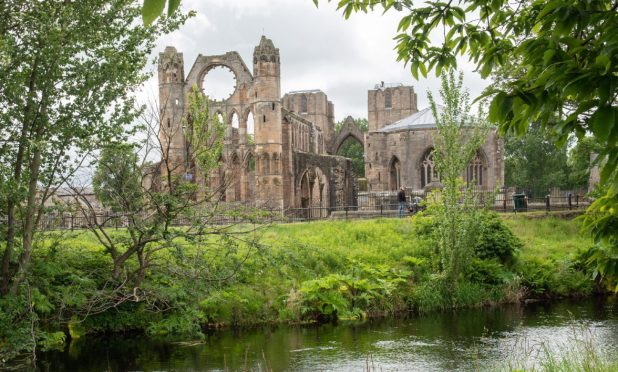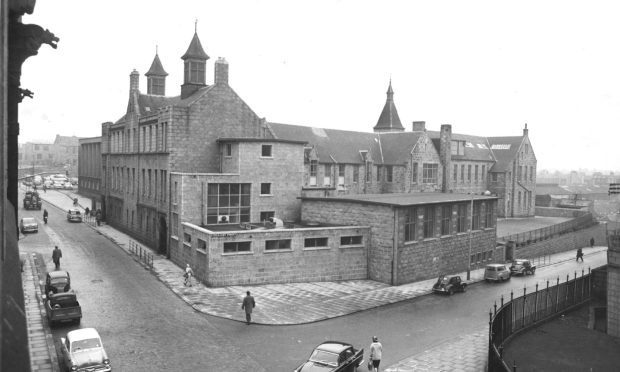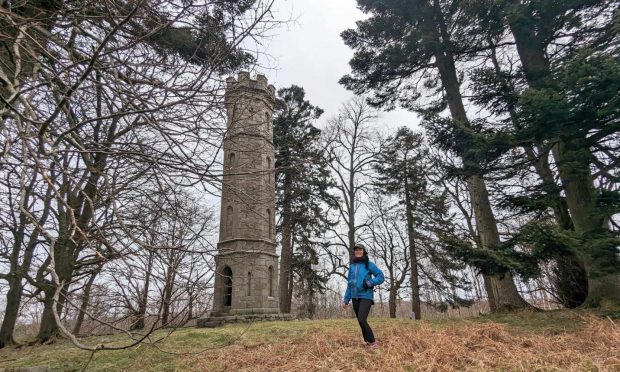It might seem a world removed from working on a north-east farm to helping the British security services at GCHQ.
Yet, in both cases, Bill Cowie, a sprightly chap of 92, who has published a book about his peripatetic life called The Horse, the Oat and the Song, found himself grappling with different types of cold war.
Prolonged winters
During his childhood, the Newmachar-born farmer’s son, who grew up in rural Aberdeenshire as the prelude to studying at Robert Gordon’s College in Aberdeen, lived through some of the worst and most prolonged winters in the last 100 years, including those in 1942, 1943 and 1947.
He has written evocatively about his experiences of these big chills and how he and his family often had to make a little go a very long way.
He recalls developing appendicitis and how the doctor – in the days before the creation of the National Health Service – was forced to struggle through snowdrifts and resembled Nanook of the North by the time he had reached the farm and evacuated the young patient to Foresterhill Hospital.
As he told me: “To get to school, I had to walk [the four miles from Newmachar] to Dyce and it was well into March in 1947 before the first green grass began to appear after months of a frozen white landscape. I remember a carpet of ice at Schoolhill [in Aberdeen] being broken up by a caterpillar Bren Gun carrier, revolving back and forth.
“Then there was my brother, who went off to Newmachar, with a couple of pillowcases slung across the back of Willie the gelding – and no stirrups.
“We just had to get on with it. I’ve gathered together these recollections of a bygone age in the hope that those who follow on, knowing where they came from, will have a better idea of where they are going.”
Bill’s cousin, John Strachan, has also talked to us about his memories of that winter which seemed to last forever and where the local primary school was shut for 13 consecutive weeks.
He would admire Desperate Dan
Yet, for the teenager, who was studying classics in the Granite City, there were plenty of exciting experiences as he moved into a world of classics, languages, speaking Doric, rewriting hymns and admiring Desperate Dan.
Bill’s initial forays to Aberdeen are captured with the wide-eyed enthusiasm of somebody who grew up in the countryside, far from the madding crowd.
Yet he still recalls the antipathy shown towards pupils using the Doric language in the classroom which they had grown up speaking at home.
He said: “The first few days [at school] were a great culture shock. Most of us had never been away from home and we might have visited the big city, but we knew nothing about the blandishments of the Costa Brava or the joy of a Big Mac. And especially, most of us, the country ones, had never spoken anything but the north-east dialect, usually called the Doric, which is almost as different from English as Dutch is from German.
“When, nowadays, I am asked if I know any foreign languages, I am inclined to answer that my first foreign language was English.
“But it was made clear to us very quickly [by our teachers] that Doric was an uncouth, debased version of English, a notion that I have come to refute and resent more and more strongly as my knowledge of language has increased.
“The attempts we made at first to speak as required often ended in us inventing farcical hybrids, strangled vowels, as we strove to speak ‘pan-loaf.”
Not all the pupils found it easy to adapt to their new circumstances. Bill, who spent his working life at GCHQ, studied the classics and has a deep interest in words, their derivations and different languages.
Others fared less well!
School register
One young lad, who was tall for his age, but thin and gangly, struggled with the basic task of giving his name for the school register.
The conversation ran along these lines.
Teacher: “And what’s your name?”
Laddie: “Oh, my name’s Albert.”
Teacher: “And your last name?”
Albert: “Eh??”
Teacher: “Your family name, you know, your father’s name?”
Albert: “Fut?”
Teacher: “You know, you’re Albert something….”
Albert: (After a long pause) “Weel, the loons a ca’ me Pizzle.”
Bill, a man with a dry-as-Nevada sense of humour, could spot the funny side to almost every situation. Even as he and his colleagues learned their hymns and sang them with earthy gusto, they also invented parodies, including: “Jesus loves me, I ken fine, For I smoke the Wild Woodbine.”
As for the day when a chap from the temperance society showed up, it’s difficult not to conclude he was fighting a pretty tough battle.
As Bill added: “One day, the whole school was talked to by a red-faced chap, who arrived in a white van, on the terrible evil of strong drink. Strong drink??
“We looked at one another in absolute perplexity, as he said: ‘I’ve come to speak to you about alcohol and all the evils of alcohol.’
“[Our response was] what, in the first place, was this thing, alcohol? It was, now I think about it, like a page out of a Victorian melodrama.
“And so, we turned away, most of us, no sadder, and certainly no wiser.”
Bill’s world, as an adult, was an often serious business.
Cold War for company
He grew up with the Cold War for company and served his country through some occasions when the threat of nuclear annihilation was all too real, as the global superpowers vied for supremacy by amassing giant military arsenals.
After doing an MA in Classics in Aberdeen, Bill did his national service before obtaining a Civil Service interpretership in Russian and spent many years during the Cold War from the 1950s onwards at GCHQ as a Russian linguist, working during a period when the superpowers of the USA and the USSR were frequently at loggerheads.
And thereafter, be became increasingly interested in Middle Eastern languages.
But his book beautifully conveys the early life of a north-east youngster gradually playing games, making friends, learning his ABC, engaging in frenetic snowball fights on a massive scale, even as a battalion of boys moved “on a long stretch of wonderful slippery ice that carried you off, for a few moments, into a world of sheer enjoyment.”
And having his imagination stirred by the heroes of the 1940s and 1950s.
He said: “During the week, a number of magazines came out, the Wizard, the Hotspur, The Adventure and there was always a ready trade in these.
“The Dandy was just starting and, even then, Desperate Dan, was as highly thought of as any pop idol today. The more sophisticated of us had an acquaintance with a magazine called Film Fun, with cartoon strips of Laurel and Hardy, Joe E Brown, and a host of other pre-war figures.
“Another subject for swaps was cigarette cards. All of our older siblings smoked, we could not wait to do so, and these albums are now collectors’ items. We were particularly fascinated by cars, planes, footballers, animals.
“Ome of the more expensive cigarette lines produced a set of beautiful national flags in silk. Apart from anything else, there was a considerable educational benefit from these precious cards, even if they did happen to come with an accompanying smoker’s cough.”
The title of Bill’s book conveys the massive transformation which this redoubtable customer has witnessed, since he came into the world in 1929.
The horse gradually gave way to the tractor and the combine harvester: the oat played a substantial part in the lives of the people who worked in rural areas before and after the Great Depression; and the song has always been a feature of north-east culture, with bothy ballads demonstrating the Scottish penchant for putting things into rhyme and musical form.
He may have lived in England for more than 50 years, but Bill retains his Scottish accent and he’s still passionate about preserving it.
As he wrote, towards the end of his book: “I have so often been told about my ‘Scots accent’, a sweeping generalisation that lumps together accents as ‘Scots’ which are as diverse as Geordie, Liverpool, Yorkshire or Birmingham.
“The Doric is declining now, no doubt helped by the great influx of people from all over the world, particularly in the oil industry, although John C Milne who died in 1962, said that he had: “Heard an auld man speir [speak], Faur’s the bonnie dialect, That ance was spoken here?”
It’s one of the few negative conclusions in these pages and organisations such as the Doric Board have brought a new sense of urgency and commitment to promoting the language in recent years, bolstered by film festivals, music events, the publication of popular books and dedicated young enthusiasts such as Iona Fyfe, Alistair Heather and Len Pennie.
But ultimately, anybody who has grown up in Aberdeenshire, Moray, the Mearns or Angus should relish the myriad anecdotes in Bill Cowie’s work.
It emphatically shows “the past is a different country, they do things differently there.”
Bill’s book is available at www.newgeneration-publishing.com
Newmachar man John Strachan recalls great winter of 1947 when snow meant 13 missed school weeks
.
